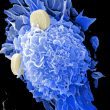As we age, our bodies go through a multitude of changes that can affect our physical abilities and overall health. This reality has led many scientists on a quest to discover ways to reverse the aging process and restore youthfulness. But is it really possible? In this article, we’ll explore the different types of aging, theories on how to reverse it, current research in the field, clinical trials for anti-aging treatments, and commercial products claiming to hold the key to reversing aging. So buckle up as we take you on an exciting journey towards discovering whether or not reversing aging is within reach!
The Different Types of Aging
Aging is a complex process that affects everyone differently. While there are many ways to categorize the different types of aging, here we’ll focus on two main distinctions: chronological and biological.
Chronological aging refers to the number of years we’ve been alive. It’s what most people think of when they hear the word “aging”. As we get older, our bodies naturally undergo changes such as wrinkles, gray hair, and decreased mobility.
Biological aging, on the other hand, refers to how well our bodies are functioning at a cellular level. This type of aging can vary greatly from person to person depending on factors such as genetics and lifestyle choices.
At its core, biological aging involves damage to our DNA and cellular structures over time. This can lead to problems with cell replication and cause us to age more rapidly than others who have healthier cells.
Understanding these different types of aging is crucial for scientists working towards reversing or slowing down the process. By targeting the underlying causes of biological aging rather than just treating outward symptoms like wrinkles, researchers hope to uncover new strategies for combating this natural process.
Theories on How to Reverse Aging
One of the biggest questions in the scientific community is whether or not we can reverse aging. There are several theories on how it might be done, but first, we need to understand what causes aging.
One theory suggests that aging happens because of accumulated cellular damage over time. This could lead to DNA mutations and other changes that eventually cause our bodies to break down. Another theory is based on telomeres, which are protective caps at the end of our chromosomes. As we age, these telomeres become shorter and eventually lead to cell death.
So how do we reverse this process? One approach is through gene therapy, where scientists manipulate genes related to aging in order to promote longevity. Another possible solution is calorie restriction, which has been shown in animal studies to extend lifespan by up to 50%.
Other researchers are looking into the potential benefits of certain compounds found in plants and animals known as “geroprotectors.” These substances may help protect cells from damage and slow down the aging process.
While there’s still much research needed before any definitive answers can be given about reversing aging, these theories give us hope for a future where living longer and healthier lives may one day be possible.
Current Research on Reversing Aging
Current research on reversing aging is a rapidly growing field with promising results. One approach being studied involves targeting senescent cells, which are cells that have stopped dividing and accumulate in our bodies as we age. These cells can cause inflammation and damage to surrounding tissues, but researchers have found that removing them can improve overall health.
Another area of focus is the role of telomeres, which are protective caps at the end of our chromosomes that shorten as we age. Some studies suggest that lengthening telomeres could potentially reverse or slow down aging processes.
Gene therapy is also being explored as a potential avenue for reversing aging. Researchers have been studying how altering certain genes related to aging can extend lifespan and improve overall health in animal models.
Additionally, there has been recent interest in the use of stem cells for anti-aging purposes. Stem cells have the ability to regenerate damaged tissue and may hold promise for rejuvenating various organs in our bodies.
While much more research is needed before any definitive anti-aging treatments become available, current studies offer hope for slowing or even reversing some aspects of the aging process.
Clinical Trials for Reversing Aging
Clinical trials are an essential part of the scientific process to determine whether a new treatment or drug is safe and effective. When it comes to reversing aging, several clinical trials are currently being conducted worldwide. These trials aim to test various compounds that may have anti-aging effects on human beings.
One of the most widely studied compounds in this regard is metformin, which has been used for decades as a diabetes medication. Researchers believe that metformin might also have other benefits, such as improving cardiovascular health and reducing inflammation – both of which can contribute to healthy aging.
Another compound under investigation is rapamycin, which primarily acts by inhibiting mTOR (mechanistic target of rapamycin), a protein associated with cell growth and metabolism. Some studies suggest that rapamycin could potentially increase lifespan in animals; however, its safety and effectiveness in humans remain uncertain.
Other interventions being tested include senolytics – drugs that target senescent cells responsible for age-related tissue damage – and gene editing techniques to modify DNA sequences associated with aging.
Clinical trials for reversing aging pose many challenges due to ethical considerations surrounding testing on humans. However, despite these obstacles, researchers continue their quest towards finding viable treatments for slowing down or even reversing the aging process.
Commercial Products Claiming to Reverse Aging
Commercial products claiming to reverse aging have been around for decades. From anti-aging creams and lotions to dietary supplements, these products promise a fountain of youth in a bottle or pill form. However, the efficacy of such products is still a topic of debate among scientists and health experts.
Most commercial anti-aging products claim to work by boosting collagen production, reducing wrinkles and fine lines, and promoting skin elasticity. These claims are often based on studies conducted on lab animals or small groups of human participants with limited sample sizes.
While some individuals may see improvements in their skin’s appearance after using these products, there is no scientific evidence that they can actually reverse aging at the cellular level. Moreover, many of these products contain chemicals that may be harmful to human health when used regularly over extended periods.
It is essential to note that reversing aging is not as simple as applying a cream or taking a supplement; it requires addressing age-related damage at the molecular level through various interventions like calorie restriction diets and gene therapies.
While commercial anti-aging products may provide temporary cosmetic benefits, they cannot genuinely reverse the biological process of aging. It’s always best to consult with your doctor before starting any new regime involving such beauty routines or supplements.
Conclusion
The quest to reverse aging has been an ongoing pursuit for scientists and researchers. While there are various theories on how to reverse aging, there is still no one-size-fits-all solution. However, with advancements in technology and research, we are getting closer to finding a cure.
It is important to note that while commercial products claiming to reverse aging may seem promising, they should be approached with caution as their effectiveness may vary. It is always best to consult with a healthcare professional before trying any new product or treatment.
As we continue our journey towards reversing aging, it is crucial that we maintain healthy lifestyle habits such as regular exercise and a balanced diet. These habits have been shown to slow down the aging process and improve overall health.
With continued efforts from the scientific community and individuals taking proactive measures towards their own health, the possibility of reversing aging becomes more tangible each day.











